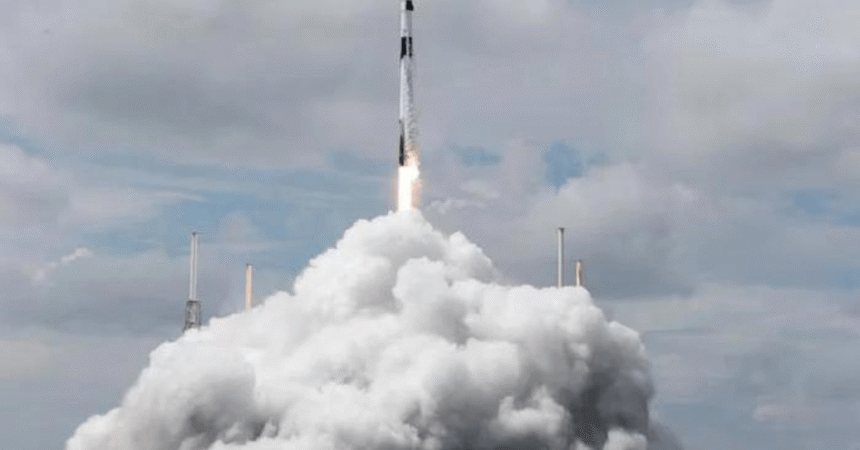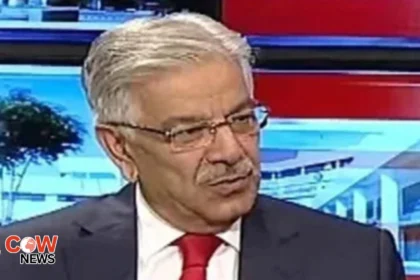In a critical development for commercial space travel, SpaceX has temporarily grounded its Falcon 9 rockets after a malfunction during a recent launch aimed at rescuing two NASA astronauts stranded aboard the International Space Station (ISS). This incident has raised concerns about safety and reliability in the rapidly evolving space industry, highlighting the complexities involved in human spaceflight.
The Mission Overview
The Falcon 9 rocket was launched from Cape Canaveral Space Force Station in Florida as part of a mission to deliver a Crew Dragon spacecraft to the ISS. This mission was crucial, as NASA astronauts Butch Wilmore and Sunita Williams had been stranded on the ISS since a malfunction in their original transport vehicle, Boeing’s Starliner, forced it to return to Earth empty earlier this month.
With the Crew Dragon successfully docked at the ISS, the immediate safety of the astronauts was assured. However, the subsequent issue with the Falcon 9 rocket’s second stage has prompted a halt to further launches, stirring anxiety among stakeholders about the future of crewed missions.
The Nature of the Malfunction
Following the successful deployment of the Crew Dragon into orbit, SpaceX reported an anomaly during the deorbit phase of the Falcon 9’s second stage. In their official statement, the company noted, “After today’s successful launch of Crew-9, Falcon 9’s second stage was disposed in the ocean as planned, but experienced an off-nominal deorbit burn.”
This means that while the second stage of the rocket ultimately landed safely in the ocean, it did so outside of the intended target area. Such an occurrence raises questions about the rocket’s reliability and safety protocols. SpaceX has indicated that it will not resume launches until a thorough investigation identifies the root cause of the malfunction, highlighting the company’s commitment to safety.
Impact on SpaceX’s Operations
Before this incident, SpaceX had completed an impressive 96 orbital launches in 2024 alone, with the Crew Dragon mission marking the 90th launch of the year. This remarkable frequency had established SpaceX as a leader in the space industry, underscoring its capacity to execute complex missions efficiently.
However, the grounding of the Falcon 9 rockets now casts a shadow over this momentum. The next scheduled launch, which was supposed to involve deploying Starlink satellites, has been postponed indefinitely until the issues with the Falcon 9 are resolved.
The company had been on track to break its own record for launches in a year, but this malfunction could disrupt plans and lead to potential delays in subsequent missions, including those related to the ongoing development of the Starship program.
Broader Implications for Space Exploration
The grounding of the Falcon 9 rockets raises broader questions about the future of commercial space exploration, particularly the reliance on private companies for crew transport to the ISS. NASA’s partnership with SpaceX has been pivotal in advancing the commercial space sector, yet incidents like this highlight the inherent risks of human spaceflight.
The ISS serves as a critical platform for scientific research and international collaboration in space. The safety of its crew members is paramount, and any disruptions to transportation capabilities can have far-reaching implications for ongoing research projects and international partnerships.
Regulatory Landscape and Oversight
In light of the recent malfunction, regulatory bodies like the Federal Aviation Administration (FAA) are likely to increase their scrutiny of SpaceX’s operations. The FAA has been responsible for overseeing commercial spaceflight safety and ensuring compliance with federal regulations.
As the commercial space industry continues to evolve, regulatory agencies will need to adapt to emerging technologies and operational challenges. This may include more stringent safety assessments, comprehensive risk analyses, and the establishment of clearer guidelines for crewed missions.
SpaceX’s grounding of its rockets underscores the need for a robust regulatory framework that prioritizes safety while still fostering innovation. It is critical that the industry learns from these incidents to mitigate risks associated with future space missions.
The Role of Innovation and Technology
The Falcon 9’s reliability has been a significant selling point for SpaceX, particularly as the company has sought to demonstrate the safety and efficacy of its launch systems. However, the recent malfunction highlights the challenges of maintaining high safety standards while pushing the boundaries of technological innovation.
Elon Musk’s vision for SpaceX has always centered around making space travel more accessible and cost-effective. Innovations like reusable rockets have dramatically reduced the cost of launching payloads into orbit, but these advancements also come with increased complexity and potential for failure.
As SpaceX continues to innovate, it must balance ambition with caution, ensuring that safety remains at the forefront of its operations. This incident serves as a reminder that rapid advancements in technology must be accompanied by thorough testing and risk management practices.
SpaceX’s Response and Future Plans
In the wake of the Falcon 9 malfunction, SpaceX has committed to conducting a thorough investigation to identify the underlying causes of the issue. The company has a history of addressing challenges head-on, often using data and analysis to inform improvements in design and operations.
SpaceX’s approach typically involves iterative development, where failures are analyzed and lessons are learned to enhance future missions. The company’s history of rapid problem-solving will be critical as it works to resolve the current challenges and restore confidence in its launch capabilities.
Moreover, the implications of this grounding extend beyond Falcon 9. SpaceX’s next-generation Starship rocket, which has the potential to revolutionize space travel, is also grounded pending safety checks and regulatory reviews. The future of ambitious missions to the Moon and Mars, as well as plans for interplanetary travel, hinges on the successful resolution of these challenges.
The Importance of Public Confidence
Public perception plays a vital role in the success of commercial spaceflight endeavors. Incidents like the Falcon 9 malfunction can erode public confidence, potentially impacting future investments and support for space exploration initiatives.
For SpaceX, maintaining transparency and open communication with the public and stakeholders will be essential as it navigates this setback. By sharing information about the investigation and the steps being taken to ensure safety, the company can help reassure the public that it is committed to high standards of operational integrity.
The Future of Crew Transport to the ISS
The reliance on private companies for transporting astronauts to the ISS has revolutionized the landscape of human spaceflight. However, incidents like the Falcon 9 malfunction bring into question the robustness of this system. With the Boeing Starliner program facing its own challenges, the need for reliable crew transport solutions has never been more pressing.
NASA’s Commercial Crew Program aims to create a diverse range of options for transporting astronauts to and from the ISS. The current situation underscores the importance of fostering multiple avenues for crew transport to mitigate risks associated with any single vehicle or provider.
As SpaceX works through its challenges, the broader implications for crewed missions and partnerships with other space agencies will become increasingly significant. Future collaborations may involve expanding the number of providers and vehicles available for missions to the ISS, enhancing overall safety and reliability.
Navigating Challenges in Space Exploration
The grounding of SpaceX’s Falcon 9 rockets following a second-stage malfunction represents a pivotal moment in the ongoing evolution of commercial spaceflight. As the industry grapples with the challenges of human space exploration, the commitment to safety, reliability, and innovation will be paramount.
This incident highlights the inherent risks associated with crewed space missions, underscoring the importance of robust regulatory oversight and public confidence in commercial providers. SpaceX’s response to this challenge will shape its future trajectory and impact the broader landscape of space exploration.
As the company investigates the root cause of the malfunction and works to restore its launch capabilities, the aerospace community and the public will be watching closely. The lessons learned from this experience will play a crucial role in shaping the future of space travel, ensuring that innovation continues alongside a steadfast commitment to safety.
In the ever-evolving realm of aerospace, the ability to learn from setbacks and adapt to new challenges will determine the success of endeavors aimed at exploring the final frontier. As SpaceX moves forward, it must navigate the delicate balance between ambition and caution, striving to build a safer, more reliable path to the stars.
#SpaceX #Falcon9 #NASA #ISS #ElonMusk #Aerospace #CommercialSpaceflight #SpaceExploration #CrewDragon #BoeingStarliner







